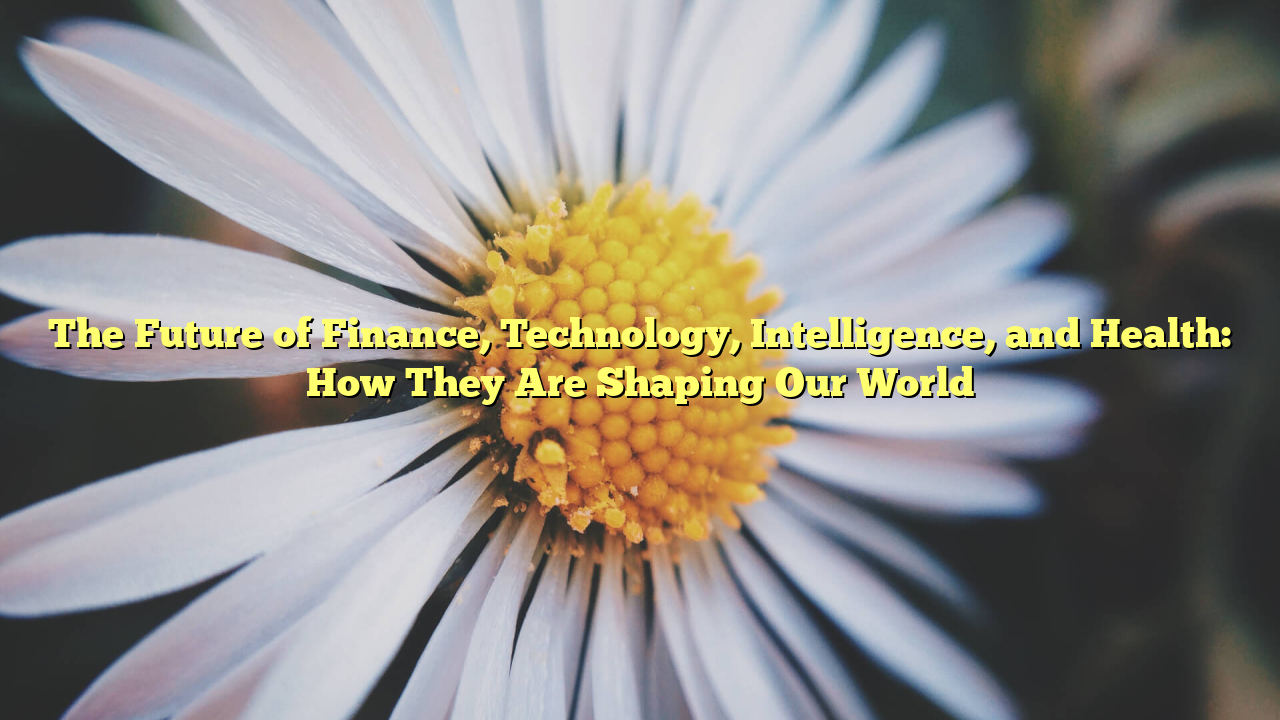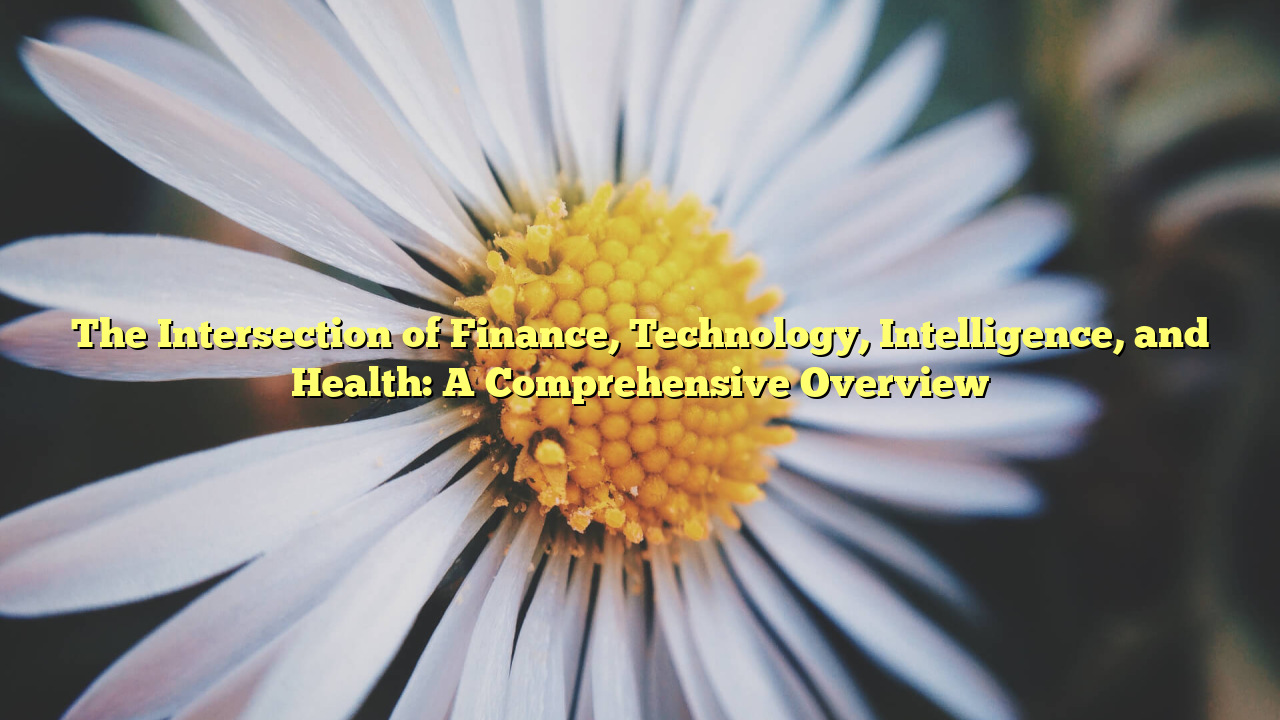In the modern era, the convergence of finance, technology, intelligence, and health is driving profound changes across the globe. Each sector influences the others, fostering innovation and providing solutions to pressing global challenges. This article delves into how these fields are interconnected and how they will evolve in the coming years.
1. The Impact of Finance on Global Development
Finance is the lifeblood of economic growth and stability. It encompasses everything from personal banking and investments to corporate financing and government spending. Over the years, the financial industry has undergone tremendous changes, driven by technological advancements and changing consumer behavior. The rise of digital payments, cryptocurrencies, and mobile banking is revolutionizing how we handle money. Furthermore, the global financial system is more interconnected than ever, with investments flowing across borders and impacting economies worldwide.
As we look ahead, the role of finance in fostering innovation cannot be underestimated. The availability of capital is essential for startups and emerging industries, particularly in tech and healthcare. However, the future of finance faces challenges such as cybersecurity threats, financial inequality, and the regulatory implications of new technologies. Governments and institutions will need to adapt their policies to ensure that financial systems remain resilient and inclusive, especially in light of global crises like pandemics and economic recessions.
2. The Role of Technology in Shaping Our Future
Technology has become an integral part of modern life. With advancements in artificial intelligence, machine learning, blockchain, and virtual reality, technology continues to change the way we live, work, and communicate. The digital transformation is disrupting industries and pushing companies to innovate and adapt. While technology brings numerous benefits, it also presents challenges, including ethical dilemmas, data privacy concerns, and the potential for widening the digital divide.
Technology is not just transforming industries; it is also enhancing our well-being. In healthcare, the rise of telemedicine, health apps, and data analytics is improving patient care and making healthcare services more accessible. Wearables and AI-powered devices can monitor patients’ health in real-time, providing valuable data for doctors and patients alike. The convergence of healthcare and technology promises a future where medical advancements are faster, more personalized, and more affordable.
3. The Rise of Artificial Intelligence and Intelligence Systems
Artificial intelligence (AI) is one of the most powerful technologies of the 21st century, with the potential to revolutionize industries ranging from finance and healthcare to education and entertainment. AI is being used to automate routine tasks, analyze vast amounts of data, and improve decision-making processes. In finance, AI algorithms are being used to predict market trends and optimize investment strategies. In healthcare, AI is enabling more accurate diagnoses and personalized treatment plans.
While slot server luar negeri holds tremendous promise, it also presents significant ethical challenges. Issues related to data privacy, surveillance, and algorithmic bias are just a few concerns that need to be addressed as AI systems become more pervasive. Additionally, the displacement of jobs by AI and automation is a growing concern, requiring new approaches to workforce training and social support. Policymakers, developers, and ethicists must work together to ensure that AI is developed in a way that benefits society as a whole.
4. Health and Well-being in the Digital Age
The role of technology in healthcare is growing rapidly, particularly in the realm of preventative care. Wearables like smartwatches and fitness trackers enable users to track vital statistics such as heart rate, sleep patterns, and physical activity. Additionally, telemedicine has made healthcare more accessible by allowing patients to consult with doctors remotely. As technology continues to evolve, we can expect even more innovative solutions that enhance our well-being and improve health outcomes worldwide.
Digital health is also helping to bridge the gap in healthcare access. Telemedicine, for instance, enables patients in rural or remote areas to access medical care that they might otherwise be unable to receive. Online health platforms and virtual consultations are increasingly becoming a viable option for people around the world. This has the potential to significantly reduce healthcare costs while improving access to services, particularly for marginalized communities.
Conclusion
The convergence of finance, technology, intelligence, and health presents exciting opportunities for global development. These fields are intricately connected, with advancements in one often driving progress in others. As we look toward the future, it is clear that these sectors will continue to evolve, creating new challenges and opportunities. By harnessing the power of innovation, we can build a more connected, equitable, and healthy world for generations to come.
The Future of Finance, Technology, Intelligence, and Health: How They Are Shaping Our World



